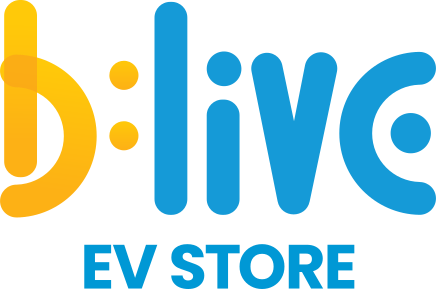Content
Some of the features our software includes are auto lead qualification, custom reporting, and document management. By leveraging an AMS, insurance agencies can offer more personalized and timely client forex affiliate software service. The system can automatically send personalized communication regarding policy renewals or changes, manage individual client portfolios, and quickly access a client’s history to provide tailored advice. While CRMs focus broadly on customer relations, an AMS provides these functionalities with a specific focus on the needs and expectations of insurance clients, leading to stronger, more reliable relationships. AgencyBloc is an agency management system that helps life and health insurance agencies grow their business with an industry-specific CRM, commissions processing, and integrated business and marketing automation. Every association needs to process association-specific transactions like dues, event registrations, committees, and more.

Salesforce customization: bending the world’s most powerful CRM
It’s powered by Salesforce® and offers automated alerts for listings, rates, and loan milestones, which are supported through features like SMS texting and email integrations. With mobile capabilities, Jungo can be accessed from anywhere, making it a convenient solution Proof of stake for brokers on the go. Designed for loan officers, Aidium is a cloud-based solution which connects users with their customers and streamlines campaign planning.
Why Insurance Agencies Need CRM Software
Most AMS systems accommodate a variety of types of billing including annual, anniversary, sliding scale, and pro-rating dues depending on when the member joins. AMS systems can also streamline the management and billing of subscriptions for newsletters, journals, and more. It centrally stores customer information, including contact and policy details and agency interaction history. CRM insurance software can help agents track sales, identify cross-sell opportunities, and measure marketing campaign effectiveness. Synatic’s CRM sync integration gives businesses insights into all aspects https://www.xcritical.com/ of their customer policy details.

See what your agency could be saving. Calculate your ROI today
An association management system (AMS) is software associations use to manage member engagement and provide resources to grow new and existing member relationships. In today’s data-driven world, many associations have turned to AMS to act as a framework for membership growth and retention. Association management software (AMS) is an all-in-one software package, which provides professional and trade associations with the necessary features to run their organization. AMS is an acronym that may refer to association management software or association management system. If you had to describe the difference between a customer relationship management (CRM) system and association management software (AMS), what would you say? It’s not an easy question to answer for a lot of people, even experts that have used both for years.
- The relevance of your AMS / CRM solution can also be measured in its ability to meet the specific needs of your sector.
- With an AMS built on customer relationship management (CRM) software, you have features like lead and contact management, reports and analytics, process automation, and artificial intelligence.
- Expert Pro provides a user-friendly dashboard with data visualizations to help users calculate client values and provide in-depth comparisons needed to support decision-making.
- By leveraging an AMS, insurance agencies can offer more personalized and timely client service.
- CRM solution BluMortgage has been developed with Canadian mortgage brokers in mind and has a strong track record of proven industry success.
- It’s not an easy question to answer for a lot of people, even experts that have used both for years.
They wanted one place where they could get a 360° view of their customers and access their marketing, finance, community, etc. data under one main umbrella. Unlike AMS systems who try to retro-fit their software to plug holes created by new software integrations, CRMs were designed from their onset to seamlessly integrate and extend associations’ software capabilities. A standalone CRM system equips you with essential tools for storing customer data, identifying leads, and closing deals. On the other hand, AMS offers expanded capabilities for managing client relationships and enhancing communication. AMS systems go beyond the standard CRM functionality by providing tools to oversee the entire customer lifecycle, increase operational efficiency, and monitor agency performance metrics.
A standalone CRM system will provide you with the core technology to store customer data and use it to find prospects and close deals. When it comes to managing an insurance business, the tools you choose make all the difference. Two of the most popular types are customer relationship management (CRM) systems and agency management systems (AMS). Both promise to streamline your workflow, boost productivity, and help you stay organized. The best systems have intuitive tools for agency management, automation, retention, commercial submissions, eSignature, email marketing, text messaging, client self-service, payments, reporting/analytics, and more.
BluMortgage also simplifies underwriting process by automating time-consuming yet critical tasks needed to complete a mortgage. Solutions start at just $75, and free trials are available so you can test-drive the system firsthand. It makes a lot of sense to me why companies that don’t have true CRM capabilities would blur those lines. I’ve been working in the association space for over 20 years, and I believe this gives me a unique historical perspective on this shift. Years ago, when we committed to building a product based on Microsoft Dynamics, we had the CRM functionality that associations need, but not the robust, tailor-fit modules that associations need to function every day. Apparently, I’m not alone in this line of thinking, which is why more and more AMS vendors are touting and/or working to develop at least some basic CRM functionality in their offering.
Being in the cloud means that the association management system and its data are hosted online, versus a local server. Cloud-based software offers increased functionality, allowing vendors to release software quicker and easier. It also allows all software users to be on the latest version and take advantage of all of the latest features. Another perk of cloud-based software is the lower cost of ownership because vendors are responsible for updates, security, and performance monitoring. Jungo provides a centralized system for managing mortgage documents from lead generation through loan finalization.
To decide between CRM and AMS, consider whether you need software primarily to streamline daily tasks or if you’re looking for a solution that also enhances client relationship management. While AMS focuses on managing internal tasks and tracking information within the organization, CRM for insurance agencies goes further by capturing insights on existing and prospective customers. This makes CRM especially useful if you want to understand client behavior and enhance customer engagement. AMS typically reports data on current customers, focusing on existing policyholder behavior. Insurance agent CRM software, by contrast, analyzes data on current and potential clients, predicting future engagement.
An agency management system, or AMS, is a SaaS (software as a service) technology that insurance agencies use to organize their book of business, generate leads and manage sales, and more effectively run their operations. Often, an AMS is specific to a niche of insurance, like P&C, life insurance, health and benefits agencies, or Medicare. Insurance agents and agencies can greatly benefit from the tools and features of insurance CRM solutions. At Commence CRM, we help insurance agents and agencies enhance sales through our next-generation CRM for insurance agencies.
Though both tools collect and store customer data, how an insurance agent uses this data is critical in attracting potential clients and generating sales. An industry-specific management platform, like AgencyBloc, has all of those capabilities in one centralized location, plus they’re tailored to your industry’s specific needs! This allows your teams to streamline their processes, create efficiencies, simplify compliance management, and be more productive. Those customizations (i.e., a commissions processing platform or compliance management tools) can come at a hefty price. Additionally, your team isn’t guaranteed that the customizations will be supported indefinitely. The platform could make an update at any time that could wipe out the changes you made.
Renewals are also a vitally important time for Producers to touch base with their customer and review their risk coverage requirements. Datafloq is the one-stop source for big data, blockchain and artificial intelligence. We offer information, insights and opportunities to drive innovation with emerging technologies. Let’s dive into the key differences and see which type of software could be the perfect fit for your insurance business. This requires you to use different software packages for the management of your activity.
Independent agents, in particular, may need to verify whether a given CRM or AMS software includes commission tracking. Customizable options in CRM and AMS software can be adapted to track commissions, though these setups may require extra effort if the software is not specifically designed for the insurance sector. This is the last step before you can take full advantage of the power of your new AMS / CRM solution. According to the user profiles (simple users, administrators and super administrators), each one can follow the training which is intended for him. At the end of your training, the Eudonet teams send you user guides that you can customise according to your own business processes.
To decide which tool suits your needs best, it’s essential to look closely at the features offered by insurance CRM and AMS. These systems store and organize customer data, but the way agents use this data varies, affecting their ability to attract new clients and drive sales. Aside from tracking individuals inside the organization, CRM software is also helpful in tracking the behavior of existing and potential clients. There is also customizable CRM or AMS software available on the market which insurance agents can customize to help record and track any commissions they receive. However, setting up this feature can be very time-consuming, especially if the software is generic and not specifically made for the insurance industry.

